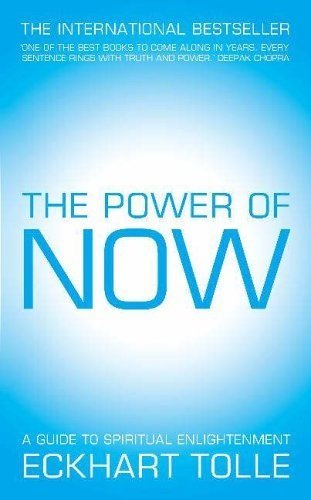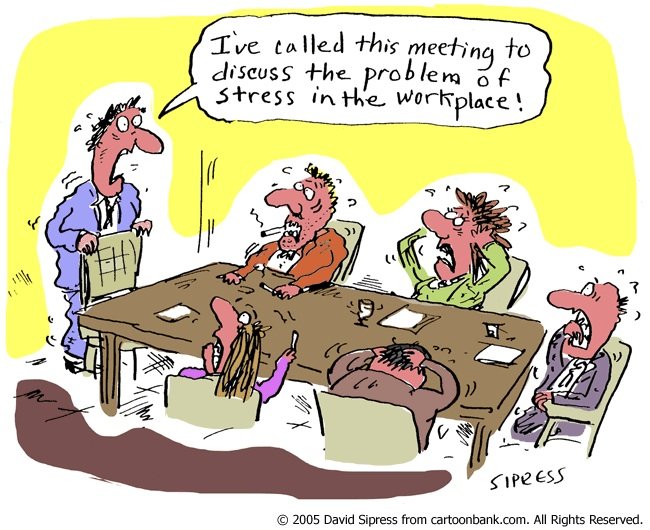 It was at the birthday celebrations – with fireworks – of a fellow leukaemia patient, when talking to the partner of yet another friend of leukaemia (we had a little network), that I first heard of Eckhardt Tolle’s The Power of Now. I had been explaining my bacon theory, when Bridget delightedly piped up to say that my ideas shared a lot with Tolle’s multimillion-selling self-help book.
It was at the birthday celebrations – with fireworks – of a fellow leukaemia patient, when talking to the partner of yet another friend of leukaemia (we had a little network), that I first heard of Eckhardt Tolle’s The Power of Now. I had been explaining my bacon theory, when Bridget delightedly piped up to say that my ideas shared a lot with Tolle’s multimillion-selling self-help book.
It was exciting to hear that I had stumbled upon a philosophy that had been successfully sold to vast numbers of people across the world, though of course also a little disappointing to discover that somebody had already got there first – and claimed the royalties.
It’s actually been a while since I read the book – I think I lent it to someone and haven’t seen it since – so my memories of all the details are a bit hazy, but some parts have stuck in my brain, partly because I think of them often when confronted with tricky situations.
One of my lines has always been that we shouldn’t try to cross bridges before reaching them, and that in fact we shouldn’t bother too much about those bridges at all when we cannot even be sure we are going to have to cross them. Take things as they come, and don’t waste precious time and energy on things that may never even happen. The Power of Now is similar: don’t waste emotional energy on events that may not happen or that you have no control over (that’s incredibly simplified, of course – there’s enough to drag it out over the length of a book).
Tolle has a useful three-point guide to dealing with future events about which you’re worried, which I often turn to when I realise I’m getting unduly stressed. Roughly, it goes like this:
- Can you avoid this tricky event? Is it something you really have to face?
- If not, can you do anything to make it less of a worry? Can you prepare / change things so the outcome is likely to be better?
- Failing that, accept that what will be, will be. As you know you have to confront it, and that you have done everything you can to make sure of a positive event, there’s no use expending emotional energy worrying about it, as that won’t change anything. Deal with the event when it happens.
 Imagine you have a meeting coming up with your boss, where you know he is going to tell you off for getting something wrong. Fretting and conjuring up all the worst-case scenarios isn’t necessarily going to get you anywhere.
Imagine you have a meeting coming up with your boss, where you know he is going to tell you off for getting something wrong. Fretting and conjuring up all the worst-case scenarios isn’t necessarily going to get you anywhere.
So: can you escape this meeting? Perhaps you can, by sending him an email explaining that you know you made a mistake and explaining the steps you are taking to avoid making a similar mistake in future.
If that doesn’t work, or isn’t suitable, then can you do anything to make the event better? You can certainly think about what led to the mistake and how you can avoid such mistakes in future, so you’re as prepared as possible to put forward as positive a reaction as possible. In more extreme cases, perhaps you need to think pragmatically about how to defend your suitability for the role, if you think it may be on the line. But that’s key – think pragmatically, rather than stressing about the myriad possibilities, the vast majority of which are never going to to happen.
Finally, you’ve done everything you can, and nothing you do between now and the meeting is going to affect how things go. All you can do is go in and face your boss (as prepared as possible), and deal with whatever happens then. Worrying about the meeting all week isn’t going to make it easier, but it will make you stressed and unhappy, and probably make you more likely to make another mistake.
Similarly, when confronted with a mountain of work, by focusing on what you can do now, and getting on with it, rather than stressing out about the mountain of things to do and how you’ll ever meet deadlines, you’re likely to achieve far more, far more quickly.
Of course, that’s often easier said than done, but at least by starting to think that way, it may be easier control those emotions and say: “Rationally, there is no benefit in worrying, as I am prepared as possible.” Even if you didn’t have as much time to prepare as you might have hoped, you are still as prepared as you can be, given the time available.

I’m lucky to have a laid-back approach to events, that makes it fairly easy for me to minimise the stress of upcoming difficulties – sometimes by running through Tolle’s three points. By focusing on issues when they occur, rather than stressing about them beforehand, with no great gain, I am fortunate to be able to glide relatively serenely over the bumps in life’s road. As you’ll probably already have gathered, I try to take this approach with pain, too – deal with it when it happens, not before.
When it comes to the leukaemia, it is a strategy that works for me: I’ll deal with each step as I get to it, and with any problems when they arise. This is very different from denial; for me it is key to know what may lie ahead in terms of treatment, and life generally cannot be lived without at least some consideration for the future.
But these considerations are, for me, logistical – not emotional. I know I will need a bone marrow transplant, and I’ll persuade everyone I can to get on the registers to boost my chances, but I’m not worrying about it and what it might entail at the expense of enjoying my everyday life, because it’s not happening now.
Tolle probably explains better than I do how to get into that state of mind, and I recognise that it is not necessarily very easy – or even the best approach for everyone. I can’t pretend I always manage to keep that serenity – Mariacristina often has to remind me to think of the philosophy I have often banged on about to her.
I believe it is worth a thought, though – as long as you don’t stress yourself out trying to apply it to your life…

This is a good philosophy for dealing with life. We all make the mistake of fretting unnecessarily, despite preaching the principle to others!. However, as George knows, accepts and has pointed out, The Power of Now is entirely different from planning and it is important not to use the Power of Now as an excuse for failing to plan ahead. As a military man, we always used the 6P principle – Prior Planning Prevents P*ss Poor Performance.